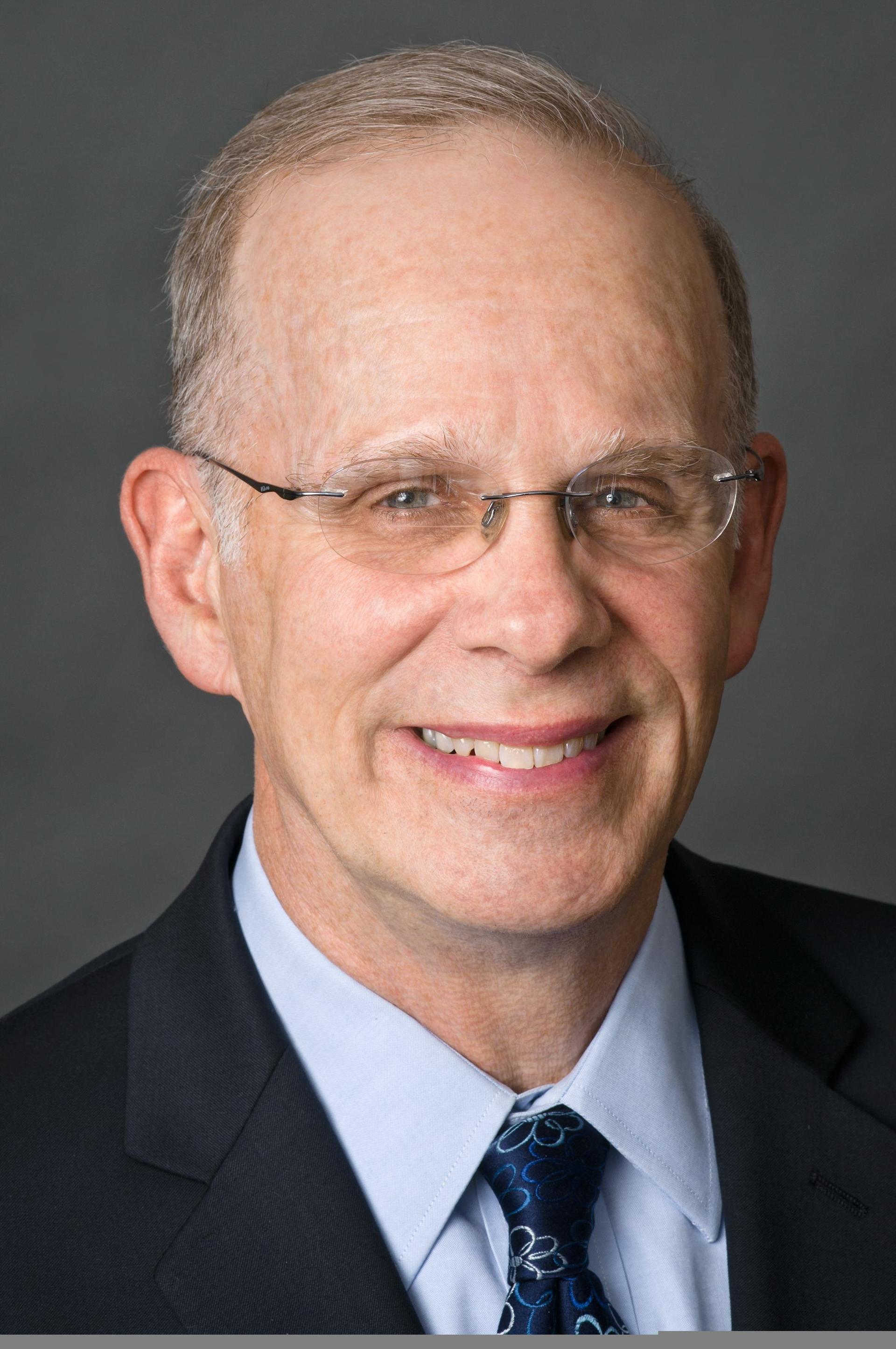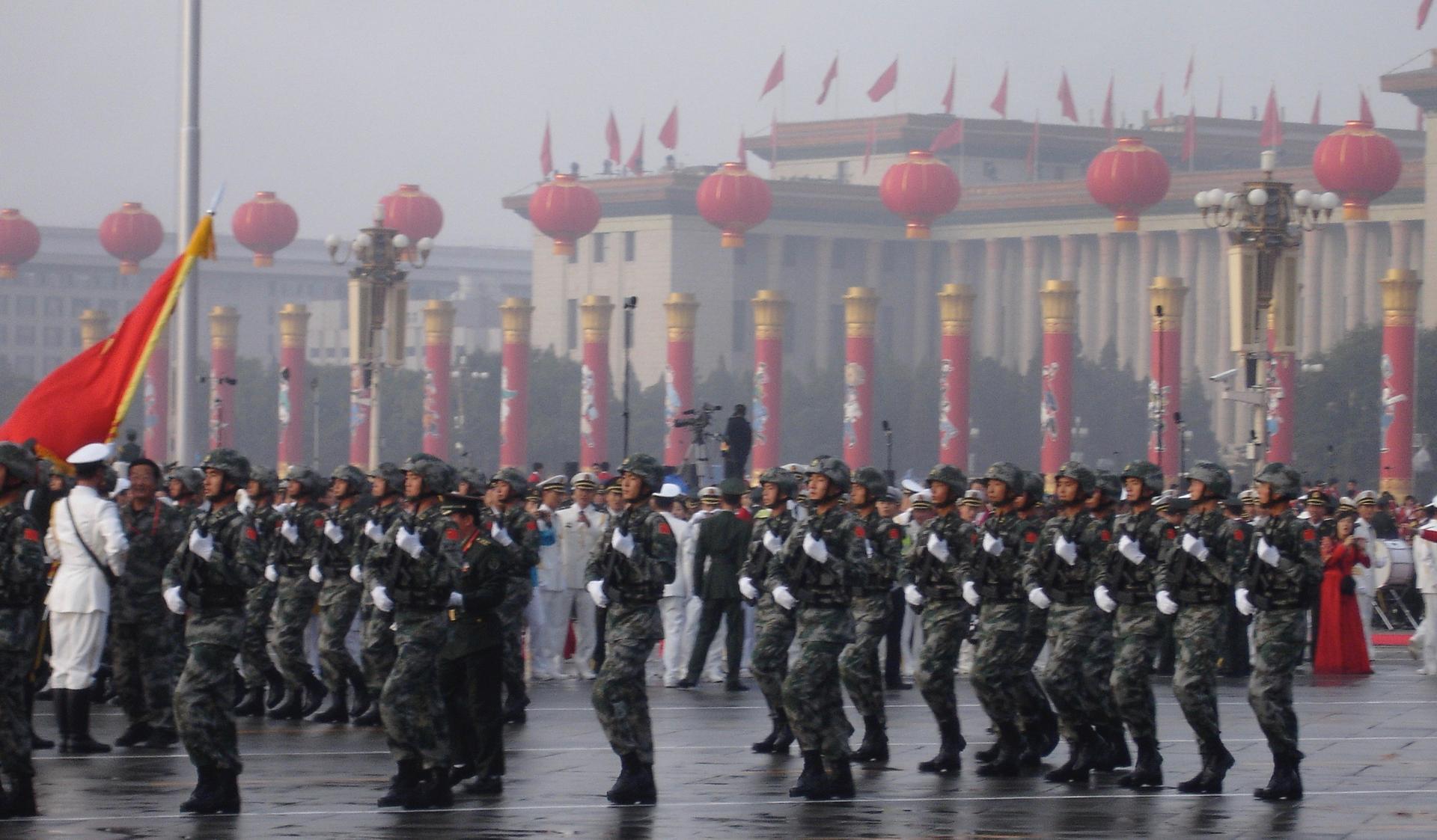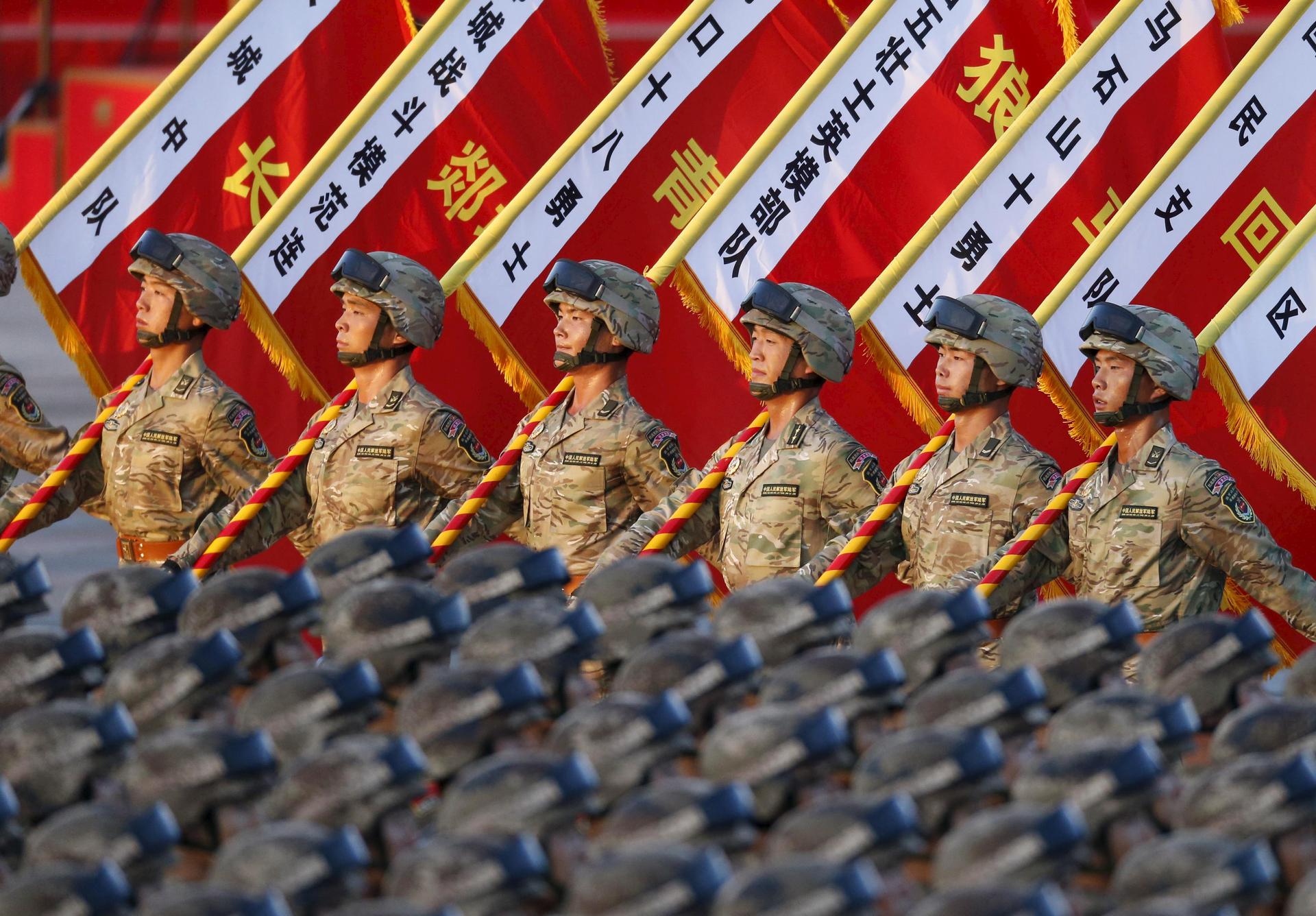An uneasy history of US-China conspiracy theories
Soldiers of the People’s Liberation Army of China stand in formation in September 2015 as they gather ahead of a military parade to mark the 70th anniversary of the end of World War II, in Beijing.
Conspiracy theories abound, and they tend to have a few things in common.
“Conspiracy theories are the product of mistrust or distrust of power. They cannot be disproved easily. They develop a life of their own. And once they’re born, they never seem to die,” says Terry Lautz, a China expert, former vice president of the Henry Luce Foundation, and visiting professor at Syracuse University and author of John Birch: A Life.

One came together around the life of a young Baptist missionary turned World War II military intelligence operative, John Birch, who was shot and killed by Chinese Communist troops at the end of the war.
Birch’s parents were told that their son had been killed by stray bullets as he was riding in a train in China. His mother became suspicious when she read, upside down, a paper on a clipboard held by a visiting US military officer, saying John Birch was killed by Chinese Communist troops. As she publicized her son’s case, and pushed for posthumous military honors, she asked why the military was covering up how he really died.
Thirteen years later, in 1958, with the blessing of Birch’s parents, candy magnate Robert Welch borrowed John Birch’s name for his new anti-Communist John Birch Society. He called Birch the first casualty of the Cold War, a man who had knowingly gone to his death so Americans could know the perfidy of Chinese Communists, and of what Welch imagined were the secret Communist sympathizers in the US government who had helped Mao Zedong come to power.
The John Birch Society, at its peak in 1964, had about 100,000 members, many of them supporters of Barry Goldwater, suspicious of big government as being part of the slippery slope to socialism. A satirical song mocking the group in the early ‘60s, by the Chad Mitchell Trio, suggested most members didn’t even know who John Birch was — and Terry Lautz says, they weren’t alone.
“I had grown up thinking that John Birch was a right-wing radical, who represented the fringe elements in the late 1950s and early 1960s,” Lautz says.
When Lautz discovered that the real John Birch spoke fluent Chinese, and lived and worked in China for five years, Lautz decided to dig deeper. He soon found that the reason the US military might have chosen to conceal the way John Birch died was to prevent embarrassment, both to the military and to Birch’s family.
_0.jpg&w=1920&q=75)
What happened was this: At the end of the war, after the atomic bombs had already dropped on Hiroshima and Nagasaki, Birch was given the mission to go to Xuzhou, in eastern China, to see how US troops might move into the area.
“And at this point, also, the Communists and the Japanese who have just surrendered and some of the Chinese who have been fighting for the Japanese, are engaged in a land grab. All hell is breaking loose,” Lautz says. “It's chaotic, and the territory that Birch has passed through has been ravaged in this fighting. He's seen telephone or telegraph lines that have been pulled down. The railway tracks have been pulled up. He encounters a village where the Communists have done have done damage. And so he's increasingly upset, increasingly alarmed with what's going on because his feeling is the war, as you say, the war is over.”
Birch encountered a unit of Chinese Communist troops, who tried to disarm him. In the last stretch of the war, US troops in China had cooperated with both the Communists and the ruling Kuomintang army, so Birch was impatient and curt. According to a Chinese colleague with him who was shot but survived, Birch called the Communist soldiers "bandits," a pejorative term the Kuomintang used on them, and when one of the soldiers walked away from him, Birch went after him and grabbed his collar. Birch said America had won the war; how dare anyone try to disarm him?
What Birch didn’t know was that as the war against the Japanese wore down, Communist leaders had told their units to disarm and detain any armed forces that came into their territory, and await further instruction. Still, after word of Birch’s death got out, Communist leader Mao Zedong met with the top US military official in China, Gen. Albert Wedemeyer, and said he knew nothing of this shooting, but if Communist troops had done it, it was a mistake or a misunderstanding, and he was sorry.
But as the Cold War revved up and the iron curtain went down, Birch’s story was borrowed, embroidered and embellished, until he became a martyr for liberty, an icon of fervent anti-Communist right-wingers who saw conspiracies everywhere.
China, under Mao Zedong and after, had its share of conspiracy theories, too, and repeatedly rooted out supposed sympathizers of such counterrevolutionary ideas as democracy, human rights and rule of law. Current president and Communist Party chief Xi Jinping is now reprising that endeavor, saying the survival of the party depends on it.
Meanwhile, at least some of China’s leaders are quick to see conspiracy in any reaction to China's rise and China's claim of territory and of rights within the world as being a conspiracy to contain China, to keep China down. And distrust and unease about the motives of China’s leaders has grown in the United States, as well.

“I think many of us in the United States thought that China was at a point where they had reached a tipping point, in terms of not being able to turn back to authoritarian or neo-authoritarian politics,” Lautz says. “And now we're being proven wrong. And so, there are those within the China policy community, the China academic community in the United States, who are expressing concern, if not dismay and disappointment. And I find it very interesting, very telling, that we're actually using those words because it harkens back to the ‘loss’ of China in 1949."
“My concern is that this mistrust or distrust could become contagious. It could lead to deeper problems in the relationship. And that then could be the seedbed for the sense that China is not going to rise peacefully, that China has designs that they aren’t willing to talk about, that China is really out to control the East Asia and Southeast Asia region, if not the whole world.”
But here’s the thing about conspiracy theories. They’re not all wild-eyed nonsense. Many are based on at least a kernel of truth. The US government really has promoted a policy of peaceful evolution, and would prefer a China that embraces democracy, human rights and rule of law. China’s leaders really do want to see China project more power in the world, and for the US to graciously step aside and accept that China is this century’s new power.
There are real differences, and real tensions, and even without conspiracy theories, there’s a real chance that at some point in this century, those tensions will erupt in conflict. But there’s also a good chance that they won’t — as long as the leaders of both sides feel they have more to gain from cooperating than from fighting. Meanwhile, it helps to understand what matters to each party and where the emotional hair-triggers lie that could sweep rational pragmatism off the table, and let distrust and conspiracy theories drive decisions. What kind of century this will be, depends in part on how great powers, old and new, navigate this challenge, with each other, and with their own citizens.
PRI and the Whose Century Is It podcast is funded in part by a grant from The Henry Luce Foundation.
There's more in the podcast. Listen in. And for another discussion of the future of China-US relations, check out Whose Century Is It host Mary Kay Magistad's recent guest appearance on Sinica podcast, a sharp and often funny mix of China-related news, views and culture.
